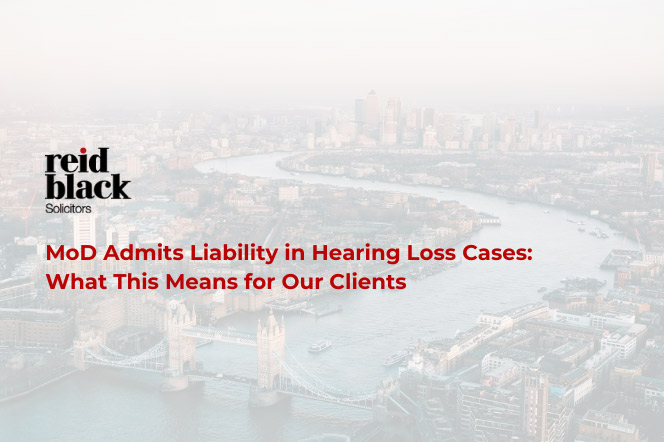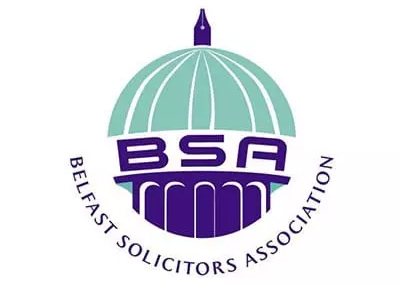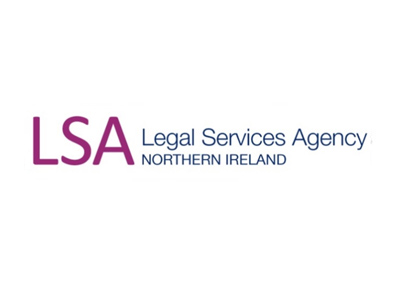Hospital Negligence Claims
Hospital Negligence Claims
If you or a loved one has suffered due to hospital negligence in Northern Ireland, you may be entitled to compensation. Our experienced solicitors can help you make a claim and ensure you receive the justice you deserve.
- Experience handling complex cases against hospital doctors & nurses.
- Proven track record claiming from NHS Trusts and private hospitals in NI.
- Free, no obligation consultation.
- Simple, straightforward claims process.
- Fast-tracked interim payment options.
What is Hospital Negligence?
Hospital negligence occurs when the standard of care provided by a hospital falls short of their duty, causing harm to a patient. This can happen during emergency treatment in A&E, scheduled surgeries or specialist appointments, and can lead to injuries, infections or other complications due to substandard care.
Healthcare professionals in both NHS and private hospitals owe a duty of care to their patients. This duty requires doctors, nurses, and other medical staff to provide a standard of care that ensures patient safety and well-being.
When this duty is breached and results in harm, patients have the right to seek compensation for hospital negligence.
Hospital Negligence Claims
Unfortunately, hospital negligence commonly occurs in hospital settings in Northern Ireland. In Northern Ireland alone, the NI Department of Health reports hundreds of new clinical/social care negligence cases are opened every year – with millions of pounds paid out in compensation annually.
Some of the most common forms of hospital negligence can lead to the following types of negligence claims:
- Hospital Infection Claims – when patients contract hospital infections due to poor hospital hygiene, inadequate sterilisation or failure to follow infection control protocols. Sometimes these infections can cause severe health complications and prolonged recovery times.
- Delayed Treatment Claims – when patients are not provided with the necessary medical care in time, the health condition can deteriorate. Negligence like this can happen due to administrative errors, understaffing or miscommunication.
- Misdiagnosis Claims – Misinterpreting hospital test results means patients can sometimes receive an incorrect diagnosis from doctors. This has a knock on effect, leading to delayed recovery and unnecessary procedures.
- Amputation Claims – Amputation claims can be filed when an unnecessary/incorrect amputation is performed due to misdiagnosis, or when a needed amputation is done negligently due to surgical errors.
- Medication Error Claims – When a patient is harmed by incorrect medication, dosage, or failure to account for drug interactions. Such errors can lead to serious health issues and adverse reactions.
- Surgical Error Claims – Claims that arise due to mistakes made during surgery, such as operating on the wrong body part or leaving instruments inside the body. These errors can cause significant harm and require additional surgeries to correct.
- A&E Negligence Claims – A&E negligence can happen when emergency care is mishandled. This often results in delayed treatment, leading to potentially life-threatening situations.
- Childbirth Negligence Claims – Childbirth negligence claims involve errors during labour and delivery, such as improper use of forceps or failure to monitor the baby’s distress. These errors can cause serious injuries to both mother and child.
Causes of Hospital Negligence
Hospital negligence within NHS Trusts and private hospitals stem from various issues and can often be traced back to systemic problems within our healthcare system.
A nurse might administer the wrong medication due to unclear instructions, whereas a doctor might misdiagnose a condition because they’re overworked and lack adequate time for patient evaluation. Surgical errors can happen due to miscommunication in the operating theatre, while hospital-acquired MRSA infections often result from poor hygiene practices.
Many of these causes are avoidable. Proper training, communication and adherence to protocols can significantly reduce hospital negligence cases.
By making a hospital negligence claim, you not only seek compensation for your suffering but you also help highlight these systemic issues within our hospitals. Your successful claim could lead to positive changes for better standards of care, reducing the risk of similar incidents occurring in the future.
Hospital Negligence Claim Eligibility
In the UK and Northern Ireland, you may be eligible to make a hospital negligence claim if you have suffered harm due to substandard care provided by a hospital. To bring a claim, you must meet certain criteria.
Firstly, you must show that the hospital or healthcare professional breached their duty of care, and that this breach directly caused harm or injury. Secondly, generally you must start your claim within three years from the date of the incident, or from when you became aware of the negligence.
- Claiming on Behalf of Yourself – You can make a claim if you have personally experienced harm due to hospital negligence.
- Claiming on Behalf of Another Person – You can make a claim on behalf of a loved one who cannot do so themselves, such as a child, someone with mental incapacity, or an individual who has passed away due to negligence.
Death by Hospital Negligence
Losing a loved one due to hospital negligence is a devastating experience, and we understand that making a claim may not be your priority during such an emotional time. The grief can be overwhelming, and dealing with legal matters might feel impossible.
However, if your loved one’s death was avoidable or caused by negligence, you may have the chance to make a claim. This can provide acknowledgment of substandard care, a sense of justice, and financial compensation to help with associated costs.
When you feel ready, please contact us. Our team is here to support you and ensure your case is handled with care and sensitivity.
Hospital Negligence Claim Process
If you’re unsure where to start with making a hospital negligence claim, our solicitors are here to guide you through each step with ease. We provide practical legal assistance at every stage to ensure the process is straightforward and stress-free.
Step 1: Contact Reid Black
Begin by reaching out to our team. We’ll discuss your situation and provide initial advice on the viability of your claim.
Step 2: Gathering Information
We will help you collect all necessary medical records, evidence, and documents to build a strong case.
Step 3: Medical Assessment
A medical expert will assess your condition to establish the extent of the negligence and its impact on your health.
Step 4: Compensation Negotiations
Our solicitors will negotiate on your behalf to secure a fair compensation settlement for your suffering and losses.
Step 5: Compensation Payout
Once a settlement is reached, we will ensure you receive your compensation promptly and efficiently.
Hospital Negligence Compensation
Hospital negligence payouts aim to compensate victims for the harm caused by substandard care, attempting to restore their standard of living to what it was before the incident.
Compensation is awarded based on individual circumstances, considering the specific impact of the negligence on the claimant’s life.
- Compensation for the Injury
Claimants can receive compensation for the physical and emotional injuries sustained due to hospital negligence. For example, if you suffered a permanent disability due to a surgical error, the compensation would reflect the severity and lasting impact of the injury. - Compensation for Past Losses/Expenses
This includes reimbursement for any financial losses incurred as a direct result of the negligence. Examples include medical bills, travel expenses for treatment, and lost earnings if you were unable to work during your recovery. - Compensation for Future Losses/Expenses
Future losses cover anticipated expenses and financial impacts resulting from the negligence. This might include ongoing medical treatments, long-term care needs, or future loss of earnings if your ability to work is permanently affected.
Contact our team today for a free consultation, to see how much your hospital negligence could be worth.
Why Choose Reid Black?
Many people in Northern Ireland come to us for their hospital negligence claim because of our extensive experience and proven success. We’ve secured over a quarter of a million pounds for a client whose spouse’s lung cancer diagnosis was delayed until it became terminal, and won six-figure compensation for a misdiagnosed A&E injury requiring extensive surgery.
We handle sensitive cases with expertise and dedication, ensuring you receive the justice and compensation you deserve.
Our Specialist Hospital Negligence Claim Solicitor
Our Specialist Hospital Negligence Claim Solicitor

20 YEARS EXPERIENCE
- Libby Smyth of Reid Black Solicitors has brought successful claims against Antrim Hospital, Causeway Hospital, Altnagelvin and all major Belfast Hospitals.
- Libby has more than 20 years experience in medical negligence cases and is supported by Reid Blacks firm of litigation solicitors.
- Request a callback to get professional no obligation advice at no cost to you.
- There are a number of various cost arrangements which can be put in place and if you are under 18 years of age then you are likely to be entitled to Legal Aid for a medical negligence claim as it is the child’s income, which is taken into account as opposed to a parents’ income.
Frequently Asked Questions
Get the guidance you need from our Hospital Negligence solicitors
We understand the emotional and physical toll hospital negligence can take. Contact our solicitors today, for compassionate legal advice and support to help you seek justice and compensation.
News
PSNI Data Breach: There’s Still Time to Register Your Claim
The recent PSNI data breach has caused widespread concern among affected individuals. If you believe your data has been compromised, you can still take...
MOD Admits Liability in Noise-Induced Hearing Loss Cases: What This Means for Our Clients
Recently, headlines have been filled with news about the Ministry of Defence (MOD) admitting liability in noise-induced hearing loss (NIHL) cases following a group...
PSNI Data Breach Cases Update – September 2024
This matter was listed before the High Court Judge for Review on Tuesday 24th September 2024. Following several meetings and negotiations with the legal...
























